Hon. V. Alfred Gray
Minister of Agriculture and Marine Resources
Dear Mr. Gray:
I write to you to provide comments on the proposed “FISHERIES RESOURCES (JURISDICTION AND CONSERVATION) (FLATS FISHING) REGULATIONS, 2015” dated June 17, 2015. I write to you as Director of Bonefish & Tarpon Trust, an international, non-profit, membership-based, conservation organization based in Florida, USA. BTT’s mission is to protect and conserve bonefish, tarpon, permit and their habitats so that healthy fisheries can be sustained. BTT envisions its role as provider of biological information to resource management agencies, guides, and lodges so that they have the best available information to use as they formulate conservation strategies.
I commend your interest in protecting the economically and culturally important recreational bonefish fishery in the Bahamas. As Director of BTT, I offer the following commentary that I hope enhances your efforts to protect this important fishery.
It is BTT’s assessment that the top threats to the long-term health of the bonefish fishery in the Bahamas are habitat loss and degradation. This is not unique to the Bahamas – the same threats are impacting the bonefish fisheries in Belize, Mexico, Cuba, and Florida. Although the Draft Regulations address many management aspects of the fishery, they do not address habitat conservation and protections, which are essential components of a comprehensive conservation plan.
BTT has been working with the Bahamas National Trust, Cape Eleuthera Institute, College of the Bahamas, and Fisheries Conservation Foundation for many years to identify the habitats upon which bonefish depend. The goal of this research is to provide information to Department of Marine Resources, BNT, and others so that they can prioritize areas for conservation and protection. This research has allowed us to identify bonefish feeding areas, spawning migration pathways, and spawning locations on many islands. The feeding areas directly support the fishery, whereas the spawning pathways and spawning locations are essential to the future of the fishery. It is essential to protect all of these habitats to ensure a healthy fishery. This is especially true of bonefish spawning locations, which are in deep water that will not be protected by protections of only flats habitats. Nassau grouper provide a cautionary tale on the importance of spawning site protections. Therefore, I encourage you to incorporate a habitat conservation component as the core to your overall conservation strategy.
The establishment of a Conservation Fund is an excellent idea. However, it is unclear in the Draft Regulations to what entity and for what purpose the funds will be allocated. This has been an item of concern in many states in the US, as well as in Belize. Recreational anglers are generally willing to pay for a fishing license as long as they know the funds are being applied to conservation and protection of the fishery. In general, top concerns of anglers on the use of funds are enforcement of illegal activities (such as netting of bonefish) and habitat protection and conservation. In addition, the easier a license is to obtain (such as via a web site), the more likely anglers are to participate in the system and become engaged in conservation.
It is also unclear how the permit (license) application process and the limitations listed for the permit will impact bonefish research. Our research is already conducted under a permit from Fisheries, but it is unclear if the proposed regulations will supersede the Fisheries research permit. This is of concern since bonefish are captured for tagging research using both seine nets and hook and line.
On the topic of a fishing license, I am curious on the requirement for an application with the possibility of denial. To my knowledge, no US state or other bonefish fishing location has such a procedure, instead requiring only personal information and the required fee. I have taken the liberty of attaching a list of fees for non-resident saltwater fishing licenses for US coastal states (all of which provide access to licenses via online payment) as reference.
As you know, an economic report commissioned in 2010 by BTT, Bahamas National Trust, and Fisheries Conservation Foundation found that the annual economic impact of the recreational bonefish fishery exceeded $141 million, with the greatest relative impacts in the Family Islands. Further, the cultural importance of the fishery on the Family Islands is reflected by the occurrence of the family relations of bonefish guides – an occupation proudly passed from fathers to sons, among brothers and cousins. Given the economic and cultural importance of the fishery, the need for conservation of the fishery and habitats is clear.
The report also showed that anglers that travel from the United States, Canada, and Europe to fish for bonefish in the Bahamas contribute to the Bahamas economy in multiple ways. Many anglers stay at fishing lodges, where their expenditures support guides and lodge staff. Other anglers stay at hotels and guest houses, where their expenditures support the local communities where they stay. Moreover, these anglers spend more money per visitor night and more money per total visit than non-angler tourists. The full report is available here: https://www.bonefishtarpontrust.org/images/stories/Bahamas_Flats_Economic_Impact_Report.pdf
Finally, education is critically important. For example, the general assumption is that since the recreational bonefish fishery is catch and release, that the fishery is automatically sustainable. However, research has shown that if bonefish are improperly handled their chances of survival decreases more than six-fold. Therefore, BTT continually educates fishing guides and anglers about proper handling techniques to ensure that sufficient bonefish survive to maintain a healthy fishery. Education might be considered as an additional component to a comprehensive conservation plan.
Thank you for considering my comments on behalf of Bonefish & Tarpon Trust. I hope that BTT can continue to contribute to the conservation of the bonefish fishery in the Bahamas. As always, please consider BTT an information resource for your bonefish conservation efforts. Please don’t hesitate to contact me with any questions or concerns.
Sincerely,
Aaron Adams, Ph.D.
Director of Operations



